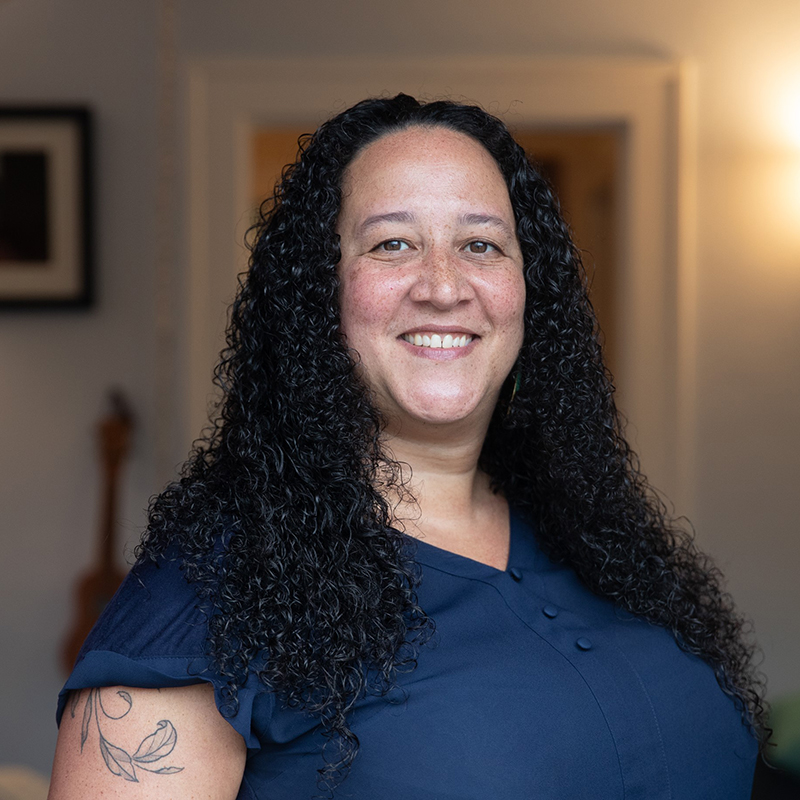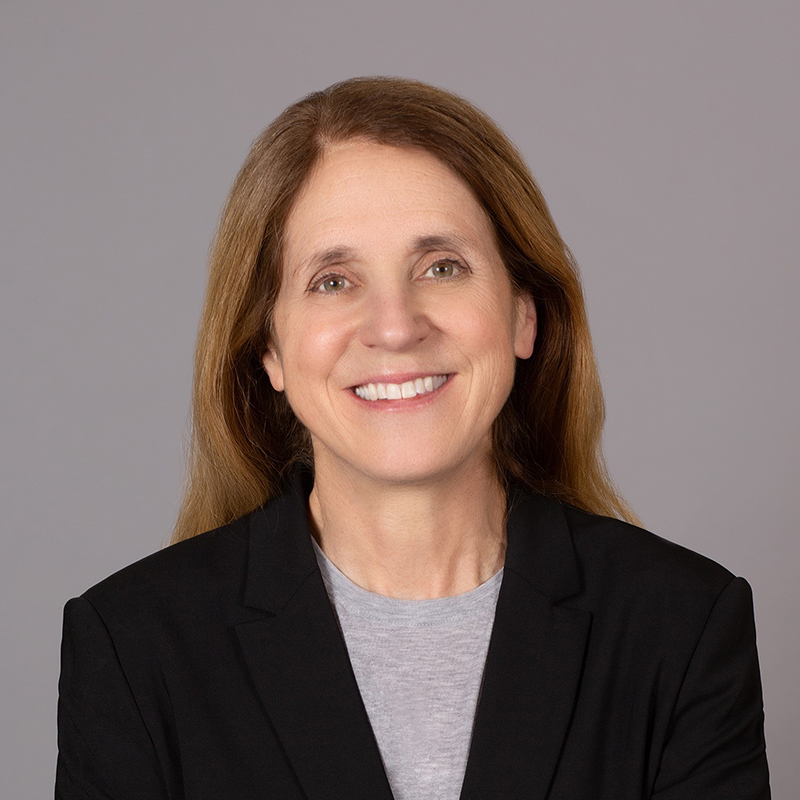Street Roots sent candidates in the May 21 Oregon Primary the same three questions about homelessness and housing in the state.
Street Roots sent the questions to candidates for the Multnomah County Board of Commissioners in Districts 1 through 4 on April 4. Four out of the five board seats — each of the district seats — are up for grabs in the May 21 election.
Street Roots also sent the questions to candidates for the Oregon House of Representatives in most of the districts with neighborhoods in Multnomah County on April 4. Candidates in Oregon's 1st, 3rd and 5th U.S. Congressional districts received the questions the same day.
Unlike the party primaries for the Oregon House of Representatives and U.S. Congress that only result in nominations for the 2024 general election, county commissioners will be elected without an additional vote in November if a candidate wins 50% plus one vote or more in the primary. If no candidate in a given county commissioner race wins 50% plus one vote, the top two candidates from the primary advance to a runoff in the Nov. 5 general election.
Street Roots did not send questionnaires to candidates in uncontested primaries and elections, which included all Oregon State Senate races in districts covering Multnomah County, Metro Council races and some state house races. Street Roots also did not send questionnaires to candidates for city office due to the lack of primaries under Portland’s new ranked-choice voting system. Street Roots’ coverage of these candidates and races will commence closer to the general election in November. Street Roots’ coverage of the May 21 Multnomah County District Attorney’s race and Oregon Attorney General primaries are forthcoming.
Street Roots sent the questionnaires to 44 candidates and received responses from 21 of them. No candidates responded from the following races: Multnomah County Board of Commissioners, District 4; Oregon House of Representatives, District 31 Republican Primary; Oregon House of Representatives, District 44 Democratic Primary.
All the candidates were given at least two weeks to respond, with an initial deadline set for April 19 that was extended to April 23. Street Roots also provided courtesy reminders to each candidate. Street Roots asked candidates to limit their responses to 250 words per question.
District 1
Meghan Moyer is the director of public policy for Disability Rights Oregon. She was previously the chief executive of N.W. Moyer Construction from 2016 to 2021, the senior project engineer at Skanska from 2019 to 2020 and the director of government relations at Portland Community College from 2015 to 2016.
She has a master's degree in American politics from American University.
What do you think is the biggest contributing factor(s) to the homelessness/housing crisis in the area in which you are seeking office?
The lack of affordable housing options for individuals and families is the biggest contributor to the housing and homeless crisis.
Wages for everyone except the very wealthy have not kept pace with the rising cost of housing, not to mention the cost of health care, food, transportation, etc. It is harder and harder to provide for a family even with two working adults. A much smaller population of homeless are experiencing mental illness, addiction, or various disabilities.
This population lacks the needed services and housing options that will work for them. The county needs to specifically address the needs of this community by building a functional behavioral health system that can treat people on demand and not wait until a life-threatening crisis, and that system needs to support individuals through their recovery journey even if people relapse.
Compassion should not be equated with ineffectiveness. We can address this serious crisis urgently and aggressively and still provide services that respect an individual’s humanity and dignity.
What should be done to alleviate the housing/homelessness crisis?
We must continue to fund projects that expand low-income and affordable housing options. We need to diversify our approach by buying existing housing as well as developing new housing projects.
I would also like to see more transitional housing being made available so people can move out of shelters and safe rest villages and into supportive housing communities. I support an adjustment to the statewide building code to allow commercial buildings to convert to residential buildings using a new specific conversion building code that prioritizes life and safety issues but makes it financially feasible to convert these properties.
We must also look at who is benefiting most from our current system of financing affordable housing and if we need to adjust this approach so that our community is getting more than just 30 years of rent control. It might be time to change the terms of the loans to buy more years of affordable rents for our community.
What are some of the efforts you've seen that are promising (in Oregon or elsewhere), and what are some tactics you feel our communities should not pursue or stop doing?
I support the creation of low- or no-barrier housing options for people who have a mental illness and/or a substance use disorder.
This has worked in other communities and allows people to have their basic needs met before addressing their untreated mental health and addiction issues. Allowing people to get off the streets and feel safe can create the conditions someone needs to start addressing other issues in their life.
This type of housing needs to be specifically for this purpose and staffed with professionals who can work with this specific population. I also strongly support the creation of long-term care options for people with severe mental illness who, even at their most stable, cannot take care of themselves. We currently do not provide this level of care for people, and that is inhumane.
I want to make sure people with mental illness have the same access to Medicaid long-term care along with others who can no longer care for themselves. This approach will save us money because we can get the federal government to pay nearly 70% of the cost of this type of care.
This will also help prevent additional hospitalizations and arrests. Most states do a better job providing services to people with serious mental illness than Oregon.
Did not respond: Kevin Fitts, Vadim Mozyrsky, Margot Wheeler, Chris Henry
District 2
Sam Adams, known as the first openly gay mayor of a major U.S. city, served as the mayor of Portland from 2009 to 2012. He served on the Portland City Council from 2005 to 2009. Adams also served as an advisor to Mayor Ted Wheeler from 2021 until January 2023, when Wheeler asked Adams to resign after staffers filed numerous complaints accusing Adams of bullying and intimidating female staffers, according to Wheeler. Adams denied the mayor asked him to step down, said he was unaware of the complaints and cited his health for why he resigned, according to Willamette Week.
While serving as mayor in 2009, Adams admitted to having a sexual relationship in 2005 with 18-year-old state legislative intern Beau Breedlove after repeatedly lying about his relationship with the teen. Adams was 42 and a Portland city commissioner during the relationship. Adams, who attended the teen’s 18th birthday, met Breedlove when he was 17 but maintained he did not have sexual contact with Breedlove until after his 18th birthday. A 2009 Oregon Attorney General investigation found no credible evidence Adams engaged in sexual misconduct with a minor, according to The Oregonian.
Adams was also accused of repeated sexual harassment by a former aide in 2017. The city’s human resources department found the claims lacked evidence or were able to be disproven in 2021, according to public documents obtained by The Oregonian.
What do you think is the biggest contributing factor(s) to the homelessness/housing crisis in the area in which you are seeking office?
Homelessness is influenced by many factors, here are some key reasons:
- Lack of affordable housing: This is widely acknowledged as the primary factor driving homelessness. According to a 2023 study conducted by the Portland Housing Bureau, there exists a shortage of more than 60,000 affordable rental units for low-income residents. This shortage has been exacerbated by skyrocketing rents that outpace wage growth, forcing many individuals and families out of their homes.
- Low wages and minimum wage issues: Portland’s minimum wage struggles to keep pace with the rising cost of living. Many essential jobs fail to provide a living wage, making it challenging to afford rent, let alone save for emergencies that could potentially lead to homelessness. This issue underscores the necessity for policies that ensure fair compensation and economic stability for all residents.
- Lack of supportive services: Mental health and addiction issues often intersect with homelessness, yet access to treatment remains limited. Furthermore, there is a notable absence of support services for individuals experiencing domestic violence, job loss or other crises that can precipitate housing instability. Strengthening the availability and accessibility of support services is crucial in addressing the diverse needs of those experiencing homelessness.
- Discriminatory housing practices: Racial and ethnic minorities are disproportionately represented in the homeless population These discriminatory practices further restrict access to stable housing and perpetuate cycles of homelessness among marginalized communities.
- Limited transitional housing: The scarcity of affordable housing extends to transitional housing options, creating a bottleneck for individuals attempting to transition from shelters or emergency housing into permanent homes. Increasing the availability of transitional housing can facilitate smoother pathways out of homelessness and into sustainable housing solutions.
What should be done to alleviate the housing/homelessness crisis?
My top priority is to see built more affordable rental housing.
In November 2022, with support from the Housing Bureau, Prosper Portland and the Bureau of Planning and Sustainability, my staff team and I successfully gained approval from the Portland City Council for an action plan to catalyze the construction of 20,000 housing units within the next 10 years. The Council’s action marked the City Council’s first commitment to a specific numerical target, detailed plans to implement it, and a group of experts to keep it moving.
The Housing Production Group was created to identify 400 publicly owned sites suitable for multifamily rental housing construction. These sites will be prepared to be “shovel-ready” for construction. I would advocate for the County to join the Housing Production Group to broaden its collaborative efforts. To help fund it, I endorse the proposal to allocate a portion of the unanticipated Supportive Housing Services funded by a tax passed in May 2020 as Ballot Measure 26-210 tax revenue from the County to help fund the construction of these 20,000 new rental housing units.
What are some of the efforts you've seen that are promising (in Oregon or elsewhere), and what are some tactics you feel our communities should not pursue or stop doing?
The Housing First model has the best outcomes. Building more housing is my No. 1 priority.
But the current 5- to 10-year waiting list for many people experiencing homelessness to get into affordable rental housing is deadlier than ever. And I cannot sit by and do nothing when we have options that can save lives and reduce injuries to those experiencing houselessness. There are upwards of 600 often moving camps scattered across 146 square miles. With that many moving camps across such a large geography, the government will never have enough resources to provide those camps with basic services, much less hire and retain enough outreach workers who could make trusted connections with social services.
As we move toward building more housing, I would continue to build on and speed up work underway to better connect those experiencing outdoor houselessness with basic services, social services and housing.
Nick Hara is a computer data specialist who has used his skills for Democratic U.S. Rep. Alexandria Ocasio-Cortez's political campaigns in New York as well as companies such as Tableau Software in New York and Triangle Associates in Seattle. He also lists experience working with data for the United Nations.
- Tom Henderson
What do you think is the biggest contributing factor(s) to the homelessness/housing crisis in the area in which you are seeking office?
One-third of Multnomah households cannot meet their basic needs. Last year, the county only spent about 65% of the allocated Supportive Housing Services bond. Metro's housing bond will produce about 5,800 new affordable units. According to the NLIHC, that still leaves 75,000 affordable units missing.
This shortage means that the wait list for a housing voucher takes years. Our system of vouchers is so difficult to manage that we created a new front-line worker called a housing navigator. These workers are excellent, but their mere presence indicates a failing bureaucratic maze. Even temporary homelessness may become a permanent one under those circumstances.
No amount of shelter beds will close our housing gap.
We are not taking the issue of homelessness or housing seriously. We treat houselessness as distinct from the region's greater burgeoning livability crisis when they are the same issue. A stark example: the average frontline worker makes less than a livable wage, pushing them to choose different work or risk homelessness themselves.
What should be done to alleviate the housing/homelessness crisis?
To build resilient and sustainable communities, we must invest in new opportunities and commit fully to our policy goals. That means fully implementing our existing safety nets, but it also means committing to a vision of a thriving future for Multnomah.
An all-in approach to housing means working to find and fill every available unit in the county. The census estimates there are 50,000 more housing units available than there are households in the region. Home Forward has the authority to have 1,300 more units under its direct control as Section 9 public housing but plans to draw down its owned units further.
Calcified politics and worries about costs conveniently ignore that the most expensive solution is our current reality.
Affordable housing is also about better wages. Since the 1980s, wages in the region have remained largely stagnant while new household burdens have made everyday living more difficult. We need to invest in green industries that favor union labor and high-wage jobs.
The climate crisis is changing the region in ways we are currently unprepared for. The county currently under-invests by about half in required infrastructure maintenance. Let's fully fund our infrastructure with a focus on green retrofits. Investments in home efficiency retrofits and resilient infrastructure are a win-win for opportunity and sustainability.
What are some of the efforts you've seen that are promising (in Oregon or elsewhere), and what are some tactics you feel our communities should not pursue or stop doing?
Punitive frameworks for homelessness are not only morally wrong, but they are the most expensive and least efficient options that we have available. At best, they move the problem a few blocks away or into our already overburdened justice system. We currently have more than 1,500 backlogged cases in our courts, and the ABA has estimated that we need 500 additional public defenders to handle the current load. New classes of crime create new cases and are not set up for rehabilitation or restoration.
HUD, the National Low Income Housing Coalition and countless programs at the local, national and international levels point to a singular conclusion: Housing First is the best policy for reducing homelessness.
Of course, if we want Housing First, we need housing first. We will only produce one-sixteenth of the total required affordable homes in the next five years. The county cannot pursue its current policy choices if it wants to create long-term solutions.
Other efforts that provide significant benefits, either alone or in partnership with Housing First policies are basic income, access to supportive services and accessible community facilities. Accessible community facilities, like Curitiba's lighthouse library system, provide residents walkable access to infrastructure that provides enriching civic space for all.
Homelessness is a part of the region's livability crisis. We need approaches that work for the homeless and the rest of the one in three households that cannot meet their basic needs. I believe that a just and thriving Multnomah is possible.
Shannon Singleton is a licensed social worker and the director of community engagement and advocacy at Espousal Strategies, a consulting firm that works with both public and private organizations.
She previously worked for Oregon Gov. Kate Brown as the director of equity and racial justice as well as the governor's housing policy adviser. Singleton ran for Multnomah County chair two years ago but suspended her campaign after being selected to lead the city-county Joint Office of Homeless Services, an interim role she held for 10 months.
What do you think is the biggest contributing factor(s) to the homelessness/housing crisis in the area in which you are seeking office?
The biggest contributor to homelessness is the lack of housing that people can afford. This crisis is a result of a housing market that is fundamentally broken. Most wages are too low, rents are too high, and people with low incomes don’t have the ability to move their lives forward because they’ve been priced out of their homes. That’s why we need more of everything. More affordable housing, more shelter, more supports for people who are struggling to pay the rent, and support for people who are buying their first homes.
What should be done to alleviate the housing/homelessness crisis?
We need affordable rental housing, whether that is through new development, acquisition or rent subsidies. We need all of them. At the same time, we must address the overlapping health care crisis and lack of ability to access mental health and addiction treatment if we want to help people move to healthy safe lives and housing stability.
We need a strategy that addresses everyone’s needs. That means more regulated affordable housing, more permanent supportive housing and more wraparound services like addiction and behavioral health services connected to the person so if they do move, they don’t lose their care. We also need to ensure we have emergency services like shelter and crisis behavioral health services that can help people in crisis.
What are some of the efforts you've seen that are promising (in Oregon or elsewhere), and what are some tactics you feel our communities should not pursue or stop doing?
Housing works. Shelter works. Recovery treatment housing works. We need all these options to ensure that the people we serve have access to a safe place that works for them. I think people are tired of politicians fighting over what might work. Instead, they want our government to get serious about spending our dollars in ways that deliver results for people on the streets and our communities. That means funding a broad range of strategies and making sure that there’s a place for people to go when crisis strikes.
We should stop designing systems without the input of the people they are intended to serve. What works is centering the experience of those most affected, in particular communities that experience disproportionately high rates of homelessness. We should stop designing programs based on the assumption that people need an incentive to seek treatment.
In my first 90 days, I would seek to add mental health street outreach staff to an existing contract to help close the gap between a person’s need and when they become Medicaid eligible and are able to navigate the outpatient clinic system.
I would work with the (Multnomah County) chair, Joint Office of Homeless Services staff, and providers to reconvene the system meetings that used to occur where providers looked at system data and shared best practices;
I would work with the Joint Office of Homeless Services Lived Experience Advisory Committee and partners like Sisters of the Road to ensure that ideas, needs and solutions are being uplifted from people currently experiencing homelessness.
Did not respond: Jessie Burke, Carlos Jermaine Richard
District 3
Julia Brim-Edwards has served on the Multnomah County Board of Commissioners since June 2023.
She has also served on the Portland Public Schools Board of Education since 2017, where she previously served as board chair from 2001 to 2005. She was appointed to the Oregon State University Board of Trustees in 2016. Prior to 2022, she worked as a senior director at Nike.
What do you think is the biggest contributing factor(s) to the homelessness/housing crisis in the area in which you are seeking office?
The biggest contributing factor to the homelessness and housing crisis in the metro area is the lack of housing supply and the lack of housing that is affordable, especially for those with the lowest incomes or who are in need of permanent supportive housing and recovery housing or housing for those who have been discharged from medical facilities.
This is a statewide Portland, and it is particularly acute in Multnomah County.
The rate of housing production in Oregon for many years fell behind the needed housing growth rate, which led to a widening gap between supply and demand. In addition, the lack of access to drug and alcohol treatment, mental health services and other behavioral health services has resulted in many individuals losing their housing because of behavioral health issues.
These issues also have an ongoing impact on their ability to move from homelessness to housing and to successfully sustain it.
COVID and the economic disruptions caused by it as well as a rising cost of living (with wages not keeping up) also impacted the ability of many in Multnomah County to be able to afford housing.
What should be done to alleviate the housing/homelessness crisis?
The county had been slow to act, and its procurement and payment practice are agonizingly slow. There has been a lack of coordination with the city of Portland with millions of unspent funds for homeless services. Also, the city and county did not have a shared plan and coordinated funding to transition people from the streets to shelter or housing.
My first months in office, I effectively pushed the commission to act with more urgency on the unspent funds and to invest in new shelter beds and alternative shelter types so that there was a path for people to transition from the street and camps to shelter, basic services, safety, as well as a path to housing.
Other supports we funded were additional investments for providers to support workforce retention and recruitment and funding for much-needed day services.
The city and the county recently released its Homelessness Response Action Plan, which contains a comprehensive set of strategies with ambitious goals to reduce unsheltered homelessness and to increase shelter and housing options The plan will need to be funded in next year’s county budget.
Much more needs to be done, including:
• Listening to unsheltered people and what they say they need to get, and stay in, housing.
• Accelerating and improving the county’s contracting process so it doesn’t take months between contracting and payment.
• Continuing our partnership with the city on sheltering strategies.
• Integrating employment opportunities with housing navigation as an empowerment path.
What are some of the efforts you've seen that are promising (in Oregon or elsewhere), and what are some tactics you feel our communities should not pursue or stop doing?
We can do better! Because of the Supportive Homeless Services funds, we have resources to provide a comprehensive set of services for the approximately 11,000 people in Multnomah County who are homeless.
We don’t need to recreate the wheel. Rather, we can identify best practices in other states or in our community and amplify and/or fund those. We also need to stop choosing between shelter or housing. We need more of both.
I am very supportive of Gov. Kotek’s focus on housing production as well as working with the city of Portland and Metro in the region on creating more transitional housing, sober and recovery housing and affordable housing. This needs to be the state’s short, medium and long-term focus.
In other regions where there has been a shared vision and plan and more coordinated action across jurisdictions (city, county and state), they are getting better results at reducing unsheltered homelessness.
In addition, when there is integration of behavioral health services with housing supports, individuals are able to successfully transition from homelessness to housing, and we should be asking our provider partners to bring forward plans which include integrated and coordinated services to increase the likelihood of successful transitions from homelessness to housing.
Travis "T.J." Noddings is a housing navigator for the Cascade AIDS Project. He previously worked as a policy intern at Law Students for Reproductive Justice. He has a bachelor's degree from the University of Florida.
What do you think is the biggest contributing factor(s) to the homelessness/housing crisis in the area in which you are seeking office?
The No. 1 factor creating the conditions for our houselessness crisis is the unaffordable cost of rent. At least 50% of all renters in the nation, including our county, are cost-burdened — paying more than they can afford in rent. Multnomah County has the highest eviction filing rate in the state, 90% of which are for nonpayment of rent because tenants don’t make enough to keep up with annual rent increases. The Legislature has banned local rent control, preventing the easiest, fastest and most secure solution to the housing crisis: permanently lowering the rent.
Furthermore, private development will never — and has no incentives to — build units affordable to households making less than 60% of the area median income. Our greatest need is for those at 0-50%.
In my day job as a housing case manager, I work with folks that have zero, low or fixed income. Finding private market housing is extremely difficult. The county doesn’t fund enough housing vouchers (despite most of our Supportive Housing Services funds going unspent), leaving most eligible houseless folks on years-long wait lists they will never come off of.
We also lack essential protections for renters like guaranteed eviction representation, mandatory good cause for eviction and caps on exploitative fees like pet rent, late fees and administrative charges. Lastly, we are one of the worst in the nation when it comes to providing mental and behavioral health care and substance treatment, necessary for supporting and stabilizing folks with the greatest need.
What should be done to alleviate the housing/homelessness crisis?
For long-term success, we must demand that the state of Oregon repeal its restriction on local rent control. We must then implement rent controls that meet the needs of our current crisis, accounting for the similarly rising cost of utilities.
We must also start building publicly funded social housing to supplement and eventually outcompete the private market.
For immediate intervention, we should use our surplus Supportive Housing Services tax funds to significantly increase the number of Regional Longterm Rent Assistance (RLRA) housing vouchers available and hire more street outreach and housing case managers to administer additional vouchers, along with more mental and behavioral health professionals. We must also fund legal representation for tenants facing eviction (currently only 7% are represented vs. 82% of landlords).
We must also as quickly as possible open a temporary 24-hour drop-off sobering center. In the wake of Measure 110’s repeal, we need diversion pathways to route folks toward support rather than incarceration. We can’t wait another year for the county’s current plan to add its first beds.
What are some of the efforts you've seen that are promising (in Oregon or elsewhere), and what are some tactics you feel our communities should not pursue or stop doing?
There are so many positive examples to learn from. Our neighbors in Tacoma just passed a Renters’ Bill of Rights last November that I would pursue here as well.
Right to Counsel programs in New York, Massachusetts and Philadelphia have all proven that providing legal representation to tenants in eviction court dramatically increases the number that stay in their homes — upwards of 80%. These programs also decrease overall eviction filings and the number of tenants that will face a second eviction in the future.
San Francisco’s annual rent increase limit is currently 1.7%. Oregon's statewide limit is 10%, and cities are forced to allow it. Every year, our crisis will get worse, and more people will be evicted onto the streets until we stop the rent gouging.
The creation of public social housing developers in Seattle, Maryland’s Montgomery County and Atlanta has started each locality on the path to building permanently affordable housing for all.
Here at home, we have excellent alternatives to policing houselessness that must be fully funded and expanded, specifically Portland Street Response and TriMet’s Rider Ambassador program.
We must stop street sweeps and illegal attempts at camping bans. We must stop building punitive (and hideous) anti-homeless architecture — like cement barricades — to push campers into ever more dangerous territory. And we must stop the false belief that tax incentives for private real estate will ever solve our crisis.
We have the resources to provide everyone with a home they can afford. We need only the will to do it.
No candidates responded for Multnomah County Board of Commissioners, District 4 (Far NE Portland, Gresham). Street Roots sent questions to the following candidates: Brian Knotts, Timothy O. Youker, Vince Jones-Dixon
Street Roots is an award-winning weekly investigative publication covering economic, environmental and social inequity. The newspaper is sold in Portland, Oregon, by people experiencing homelessness and/or extreme poverty as means of earning an income with dignity. Street Roots newspaper operates independently of Street Roots advocacy and is a part of the Street Roots organization. Learn more about Street Roots. Support your community newspaper by making a one-time or recurring gift today.
© 2024 Street Roots. All rights reserved. | To request permission to reuse content, email editor@streetroots.org or call 503-228-5657, ext. 40







